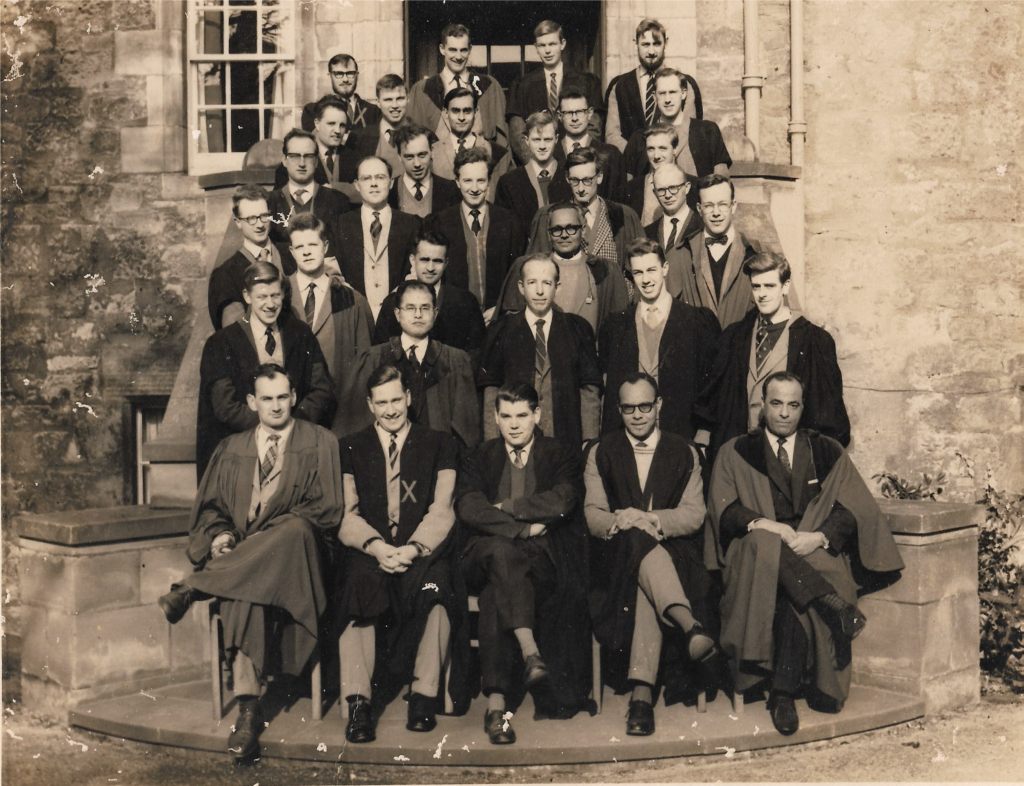St Andrews – Where I Became Fully the Person I am Today
Professor Julian Duncan (PhD 1964) tells the story of why he came to St Andrews and how it ‘enriched his life, both academically and as a human being’.
St Andrews – where I became fully the person I am today

I was born and bred on one of the smaller islands of the then British colonies in the Caribbean – St Vincent and the Grenadines – where the population was stratified – based not on colour, but on class. As my parents were both well-known in the community, I grew up with a feeling of self-importance.
After completing my primary and secondary education, I taught for almost four years before entering University. I attended the then University College of the West Indies, at that time an External College of the University of London, now the autonomous The University of the West Indies. This is located in Jamaica, the largest island of the British Colonies of the day.
The campus is situated in what is known as the Mona Bowl, in the shadow of the majestic Blue Mountain Range, somewhat isolated from the Jamaican society, with a society of its own consisting of two distinct groups: staff and students. There, I came into contact with students from all the other islands of the English-speaking Caribbean and of British possessions on mainland South America. My world began to expand and my opinion of the importance of self to change.
At the end of my final year, the Professor of Botany informed me that I was nominated by the Department for receipt of the Sir James Irvine Memorial Scholarship. The award, however, was dependant on the results of the final examination. He intimated that the scholarship was tenable at the University of St Andrews, Scotland, at which Sir James had been Principal. I had heard of the University of Edinburgh, but not of St Andrews. Having completed the degree course, I returned home to St Vincent to await news of the results and, as I thought, to continue my career in teaching.
In August, I received a telegram from the Professor informing me of the results of the examination and the glad tidings that I had been awarded the scholarship, which was to begin in October of that year (1960). As I knew nothing about St Andrews, I sought information from sources I thought should have first-hand knowledge of the place: the wife of the then current representative of Her Majesty the Queen, who informed me that it was a cold place and advised that I take with me a bottle of eucalyptus oil with which to rub the soles of my feet at night, and the late Miss Janet Buchan of Edinburgh, who was at the time the Headmistress of The Girls’ High School, which my sisters had attended. Her information was more encouraging. She said the city was full of history: there was a ruined cathedral and castle and something that lifted my spirits – she would give me a letter of introduction to her brother-in-law who was Curator of the Botanic Gardens at the University.
I arrived at St Andrews after a three-stage journey: Caribbean to London by plane; London to Edinburgh by bus and then Edinburgh to Leuchars by train, at which point I was instructed by the conductor to ‘change for St Andrews’. As I stood on the platform, somewhat like the ‘naughty boy’ who on arriving in Scotland, stood in his shoes and wondered, a gentleman in a black coat and bowler hat – whom l discovered to be one Professor Butler – approached and asked if I were a student on my way to St Andrews. He offered me a ride in his means of transport and took me to my destination: Dean’s court. How hospitable, I thought.
At Dean’s Court I came into contact with students from the four corners of the earth. Through interaction with them, my perception of the world at large and the place of the individual in it began to change. This new view was strengthened by the society in the old town, which seemed to be seamless; I could find no observable difference between town and gown.
This perception was further strengthened in the department where I noted that individuals in general respected each other. At mid-morning, everyone – Professor, staff (academic, secretarial and technical), research and honours students, all met in the Prep-room for morning coffee. The atmosphere was convivial and there was mutual respect among those gathered.
Looking back today, I realise that St Andrews was way ahead of its time in acknowledging a principle with which the world at large is now grappling: all lives matter.
Apart from that I learned a wonderful lesson from the little old ladies who greeted you as they passed you on the road; a greeting that might begin on a negative note, but immediately was capped with something positive ‘Cold! But dry!’ from which I learned that in every situation there is something for which to give thanks.
My life was greatly enriched (both academically and as a human being) by my St Andrews interlude, for which I am forever thankful. My sense of self-importance was replaced by self-respect. I never had cause to make use of the eucalyptus oil; perhaps if I had, I would not have fallen prey to a virus prevalent in St Andrews, which is responsible for a condition known as square tower fever, from which I have never recovered.